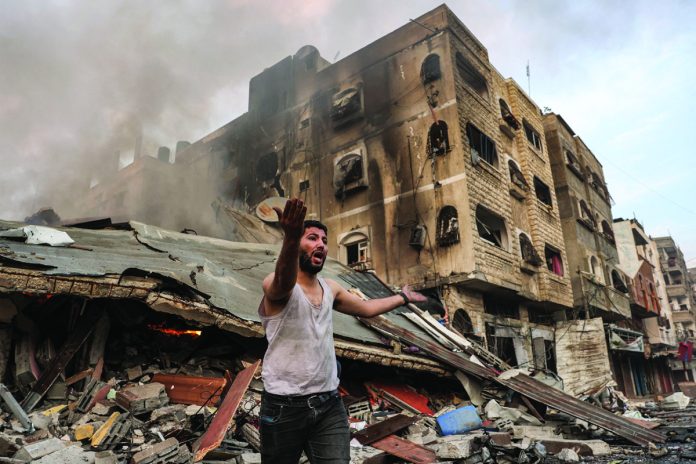
Dr. S. Bushra Batool
History doesn’t unfold neatly. Big events do not simply begin or end on one day their effects ripple far into the future. World War II is a powerful example. Even though it ended in 1945, its impact still shapes today’s world, even after 80 years. This war was not just about battles. It involved deep struggles over race, politics, and power. Some historians even see both world wars as part of a long conflict lasting from 1914 to 1945or even until 1991, when the Soviet Union collapsed.
The war connected countries across the globe and sped up independence movements in Africa, Asia, and the Middle East. But each country tells the story differently. People cannot even agree when it started: Americans think of Pearl Harbor in 1941; Russians think of Germany invading them that same year; Europeans point to 1939, when Germany and the Soviet Union invaded Poland; China says 1937or even earlier, in 1931. These different memories still cause tensions even today.
In Russia, when President Vladimir Putin is commemorating 80 years to the end of World War II, praising Soviet victory and promoting an image of Russian power that stretches across Europe. His invasion of Ukraine in 2022 echoes old Soviet fears of encirclement and claims of “fighting Nazis” just as Stalin did. At the same time, the U.S. and its allies face rising challenges: wars, terrorism, climate disasters, and political instability.
Countries like China and North Korea are expanding military power, testing international boundaries in the Pacific. Around the world, authoritarian leaders are rising, challenging democratic systems that were strengthened after World War II. The international order created after the war based on respecting borders and national sovereignty is however under threat. Just as the League of Nations failed before World War II, today’s global organizations like the UN sometimes seem powerless to stop wars or protect human rights exploitation, take the case of Israel massacre in Gaza.
The human cost of war then and now
World War II caused massive suffering. For the first time, more civilians died than soldiers. Six million Jews were murdered in the Holocaust. Poland lost nearly 20% of its people. China lost over 20 million. The Soviet Union lost up to 26 million. Many survivors never truly recovered. Soviet soldiers who were forced to fight for Germany were killed or sent to brutal labor camps.
Thousands of Japanese soldiers captured by the Soviets died working in Siberian camps. Today, civilian suffering continues in modern wars whether in Ukraine, Gaza, Sudan, or Syria. Refugees flee violence; cities are bombed; innocent people suffer under authoritarian rule. The lessons of World War II about protecting civilians, stopping genocide, and defending human rights remain painfully relevant.
Unfinished business and shifting power
World War II left deep scars in societies. In Europe, returning soldiers faced shifts in gender roles and shame about wartime violence. Political battles continued. Millions were forced from their homes as borders were redrawn. The war also introduced nuclear weapons, forever changing warfare. Today, nuclear threats have returned: North Korea tests missiles; Russia makes nuclear threats over Ukraine; tensions rise between nuclear-armed powers like the U.S. and China.
The Cold War may have ended, but new “cold wars” are emerging, with growing divisions between democratic and authoritarian nations. Once again, the world feels pulled into rival camps, with military buildups, propaganda, and economic battles.
80 years later: lessons for today
As we mark 80 years since the end of World War II, we’re reminded that the war’s lessons are not just history they’re warnings for today. We honor the bravery of those who fought tyranny, and we remember the millions of innocent people who suffered and died. But remembering is not enough.
The rise of authoritarianism, attacks on democracy, wars of aggression, and the suffering of civilians show that the dangers of the past are not gone they have returned in new forms. Putin’s invasion of Ukraine, China’s ambitions in Taiwan and the South China Sea, conflicts in the Middle East and Africa, and global refugee crises all echo problems the world faced 80 years ago. The promise of “never again” feels fragile when war crimes and genocide still happen.
Today’s leaders, like those after World War II, must choose whether we will defend peace, human rights, and democracy or let fear, hatred, and power politics take over again. In remembering World War II, we don’t just look back we look forward, carrying the hope that even in dark times, humanity can choose courage, compassion, and justice. These lessons are more urgent than ever as the world faces old dangers in a new era.
The author is a Research Officer at Rabita Forum International (RFI).









